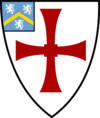
Sir Henry Percy, nicknamed Hotspur or Harry Hotspur, was an English knight who fought in several campaigns against the Scots in the northern border and against the French during the Hundred Years' War. The nickname "Hotspur" was given to him by the Scots as a tribute to his speed in advance and readiness to attack. The heir to a leading noble family in northern England, Hotspur was one of the earliest and prime movers behind the deposition of King Richard II in favour of Henry Bolingbroke in 1399. He later fell out with the new regime and rebelled, and was slain at the Battle of Shrewsbury in 1403 at the height of his fame.
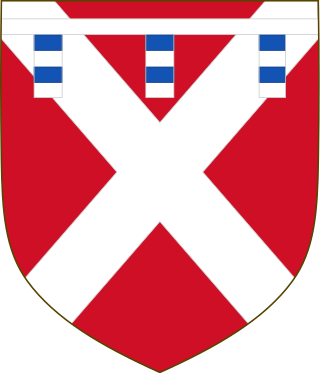
Richard Neville, 5th Earl of Salisbury KG PC was an English nobleman and magnate based in northern England who became a key supporter of the House of York during the early years of the Wars of the Roses. He was the father of Richard Neville, 16th Earl of Warwick, the "Kingmaker".

The title of Earl of Northumberland has been created several times in the Peerage of England and of Great Britain, succeeding the title Earl of Northumbria. Its most famous holders are the House of Percy, who were the most powerful noble family in Northern England for much of the Middle Ages. The heirs of the Percys, via a female line, were ultimately made Duke of Northumberland in 1766, and continue to hold the earldom as a subsidiary title.
Baron Ravensworth, of Ravensworth Castle in the County Palatine of Durham and of Eslington Park in the County of Northumberland, is a title in the Peerage of the United Kingdom.
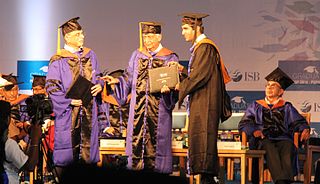
A convocation is a group of people formally assembled for a special purpose, mostly ecclesiastical or academic.

Henry George Percy, 7th Duke of Northumberland,, styled Lord Warkworth between 1865 and 1867 and Earl Percy between 1867 and 1899, was a British Conservative politician. He served as Treasurer of the Household under Benjamin Disraeli between 1874 and 1875 and was Chairman of the National Union of Conservative and Constitutional Associations from 1879 to 1883.

Eustace Sutherland Campbell Percy, 1st Baron Percy of Newcastle, PC, styled Lord Eustace Percy between 1899 and 1953, was a British diplomat, Conservative politician and public servant. He most notably served as President of the Board of Education under Stanley Baldwin between 1924 and 1929.

Henry Percy, 8th Earl of Northumberland, 2nd Baron Percy was an English nobleman and conspirator.
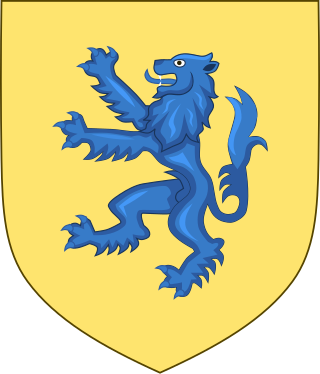
The Percy family is an English noble family. They were among the most powerful noble families in Northern England for much of the Middle Ages. The noble family is known for its long rivalry with the House of Neville, another family powerful in northern England during the 15th century. The Percy-Neville feud lead into the Wars of the Roses, at the time known as the Civil Wars, in England.

The Lord Warden of the Marches was an office in the governments of Scotland and England. The holders were responsible for the security of the border between the two nations, and often took part in military action. They were also responsible, along with 'Conservators of the truce', for administering the special type of border law known as March law.

Hugh Algernon Percy, 10th Duke of Northumberland, styled Lord Hugh Percy between 1918 and 1940, was a British landowner, soldier and peer. He was the son of Alan Percy, 8th Duke of Northumberland, and Lady Helen Gordon-Lennox. He succeeded to the dukedom of Northumberland in 1940 when his brother, the 9th Duke, was killed in action in World War II.
The governance of the University of Bristol is organised under a number of key positions; including the Chancellor, Vice-Chancellor, Pro Vice-Chancellors and the Registrar.

JoscelinePercy, 11th Earl of Northumberland, 5th Baron Percy, of Alnwick Castle, Northumberland and Petworth House, Sussex, was an English peer.
A head of college or head of house is the head or senior member of a college within a collegiate university. The title used varies between colleges, including dean, master, president, principal, provost, rector and warden.

The Colleges of Durham University are residential colleges that are the primary source of accommodation and support services for undergraduates and postgraduates at Durham University, as well as providing a focus for social, cultural and sporting life for their members, and offering bursaries and scholarships to students. They also provide funding and/or accommodation for some of the research posts in the University. All students at the University are required to be members of one of the colleges.
Honouring individuals buried in Westminster Abbey has a long tradition.

The history of Durham University spans over 190 years since it was founded by Act of Parliament. King William IV granted royal assent to the Act on 4 July 1832, and granted the university a royal charter on 1 June 1837, incorporating it and confirming its constitution. The university awarded its first degrees on 8 June 1837. It describes itself as the third-oldest university in England and is listed by the European University Association as one of Europe's oldest hundred universities in continuous operation.
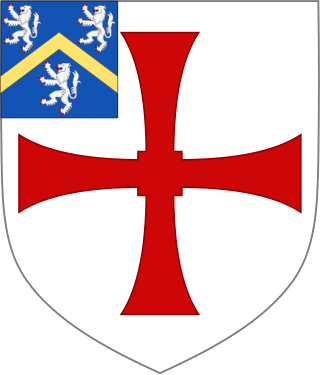
Durham University is a collegiate public research university in Durham, England, founded by an Act of Parliament in 1832 and incorporated by royal charter in 1837. It was the first recognised university to open in England for more than 600 years, after Oxford and Cambridge, and is thus, following standard historical practice, the third-oldest university in England. As a collegiate university, its main functions are divided between the academic departments of the university and its 17 colleges. In general, the departments perform research and provide teaching to students, while the colleges are responsible for their domestic arrangements and welfare.













